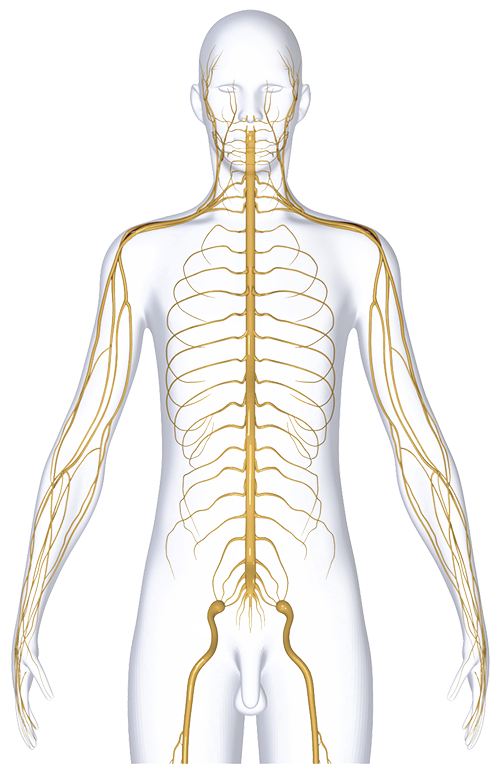
You are experience tingling, numbness, weakness or pain and you want to know what’s causing it? This quick guide will explain you how.
Tingling & Weakness in Hands, Feet, Legs Treatment: Symptoms & More
A disease is the underlying cause (i.e. multiple sclerosis), a symptom is how the disease presents itself (i.e. numbness in the limbs)
Tingling, numbness, weakness and pain are the most common symptoms in neurology. Why? Neurology is the science of the nerves (neurons). There are different types of Nerves in the human body:
 Sensory (or afferent) neurons: send information from sensory receptors to the brain. The receptors have different locations and functions:
Sensory (or afferent) neurons: send information from sensory receptors to the brain. The receptors have different locations and functions:
1. Eye – Vision
2. Nose – Smell
3. Tongue – Taste
4. Skin, inner organs – Feel, Vibration, Pressure, Pain
Motor (or efferent) neurons: send information from the brain to muscles or glands.
1. Muscles (limbs, heart, blood vessels etc..)
2. Glans (saliva etc..)
The nervous system is controlling all functions of the human body. A nerve damage is resulting in a specific function loss
1. Numbness: damage of a sensory nerve sending sensory information from the skin to the brain
2. Tingling: damage of a sensory nerve sending sensory information from the skin to the brain
3. Pain: damage of a sensory nerve sending sensory information from the skin to the brain
4. Muscle weakness: damage of a motor nerve sending a movement impulse from the brain to the muscles
Ok, tingling, numbness, weakness and pain are the most common symptoms in neurology and they are caused by nerve damages. So far so good. Now it gets a bit more complicated because we want to know where and which exact nerve is damaged. Basically there are 2 different locations possible. The CNS (Central Nervous System – Brain & Spine) and the PNS (Peripheral Nervous System – Nerves of the limbs and inner organs). It’s a bit confusing because:
Both locations can lead to the same symptoms you may experience.
For example blindness. The patient is suffering from vision loss. This can be caused by a damage of the nerve receptors in the eye, the nerve cells leading from the eye to the brain or the nerve cells in the brain itself. Tingling, numbness or pain can be caused by a damage of the nerve receptors in the skin, the nerve cells leading from the skin to the brain or the nerve cells in the brain itself.
Now it gets even more complicated because we want to know the cause of the nerve damage.

